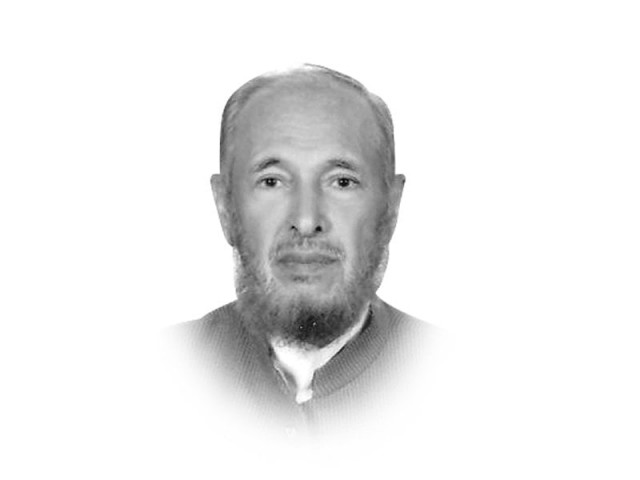Democracy, human rights and ultra-right nationalism
Kashmiris will bear the brunt of living in the most militarised region of the world

The writer is former interior secretary and former ambassador
Luckily for the BJP, in the last few years we have seen the rise of ultra-right nationalist leaders occupying positions of power all over the world — from Brazil to the US, the UK, parts of Europe, Turkey and Africa — making this the right time to take the plunge and do away with the special status of Kashmir.
In doing so, the BJP leadership was convinced that even though the decision would cause some ripples of discontent, it would consolidate the party’s position in the country because of the overwhelming support such a measure would receive from the large majority of right-wing Hindutva supporters.
The decision of the Indian government has been carefully choreographed in its timing. Prime Minister Modi will soon be meeting President Trump, who had publicly expressed his desire to mediate between India and Pakistan for resolving the dispute over Kashmir.
Although India has remained committed to its stance of not allowing third-party mediation in disputes with Pakistan, particularly Kashmir, it was certain that President Trump would raise the issue and offer US assistance behind the scenes of a sustainable dialogue between the two neighbours. By striking first, India has presented a “fait accompli” to the world and to Mr Trump.
But what the BJP’s hard-lined ideological leadership and its parents in the Rashtriya Swayamsevak Sangh (RSS) do not realise is the fact that they have driven Kashmiris into a never ending war with India — a perpetual conflict at a great cost to the country. From now on, prospects for any enduring peace have dwindled; anger and agitation will grow, affecting all aspects of life — social, economic and political. It will be a mutiny that will never end.
Not only will the LoC become unmanageable now, but there will be many unforeseen problems within India for the 15% Muslims in the country. They will face increasing discrimination, anger and hatred at all levels. Social and ethnic disharmony will strike at the roots of Indian democracy which has been mauled and bruised by the onslaught of Hindu nationalism.
Will this help the cause of India’s unity and stability at a time when the country is still reeling from the blows it received at the hands of the Naxalites? While India is still struggling to cope and overcome the Maoist rebellion in a number of states, was it prudent to challenge the Kashmiri Muslims and to provoke them to choose defiance and resistance against the new system as the only option left to them? Is it not suicidal for a country that has taken pride in its systems of pluralism and democracy for so long? Does this change in Kashmir’s status not go against the very principles of democracy that are enshrined in the constitution which has been upheld by all previous Indian governments and judiciary?
The plain fact is that the abrogation of the special status of Kashmir violates the fundamental premise on which the state acceded to India in 1947. The accession was based on the explicit assurance that the state of Jammu and Kashmir (J&K) would enjoy complete autonomy and that the central government in Delhi would only take care of defence, foreign affairs and communication.
Now that that the solemn assurance and basis of accession has been repudiated, would it not be fair to raise the issue of accession once again and go for the option of a plebiscite as advised in the Security Council resolution?
Prime Minister Modi has kicked up a storm that India will not be able to deal with in the coming years. The step will badly tarnish the country’s image in the international sphere. Its claim to be the world’s largest democracy will no longer receive the same acclaim and recognition. Its relations with Pakistan, fraught as they were, are likely to worsen.
The fear of a conflict, arising out of any miscalculation will increase manifold, resulting in deepened hostility at the cost of socio-economic emancipation of millions of impoverished citizens in both countries. But most importantly, the Kashmiris will bear the brunt of living in the most militarised region of the world and facing the consequences of an unending and bitter conflict in their daily lives.
The decision to alter the status of the state was as unconstitutional and as unjust as it was unwarranted. Historians will record this as a wholly unnecessary measure that tipped the nation into a state of anarchy. The damage to India’s polity, its democracy, and stability will far outweigh any benefit the BJP is hoping to derive by appeasing its right-wing Hindu nationalist vote bank.
The last hope of the Kashmir cause is that the Indian Supreme Court strikes down the decision to abrogate Article 370 and 35 (A) on grounds of violating the Constitution and disregarding the solemn pledge made to J&K at the time of accession in 1947.
If the court repeals the decision made by the Modi government, it will be able to restore some hope that the rapidly deteriorating situation can still be managed and will restore the people’s trust in India’s institutions. But if that does not happen then the long and dark night will perhaps never end.
Published in The Express Tribune, August 8th, 2019.
Like Opinion & Editorial on Facebook, follow @ETOpEd on Twitter to receive all updates on all our daily pieces.













COMMENTS
Comments are moderated and generally will be posted if they are on-topic and not abusive.
For more information, please see our Comments FAQ